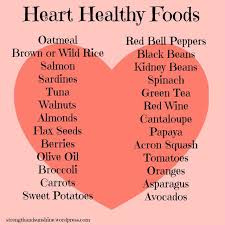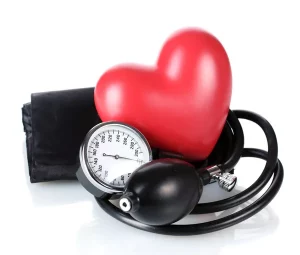
Diagnosed with Cancer? Your two greatest challenges are understanding cancer and understanding possible side effects from chemo and radiation. Knowledge is Power!
Learn about conventional, complementary, and integrative therapies.
Dealing with treatment side effects? Learn about evidence-based therapies to alleviate your symptoms.
Click the orange button to the right to learn more.
- You are here:
- Home »
- Blog »
- side effects ID and prevention »
- Chemo-Induced Hypertension Therapy
Chemo-Induced Hypertension Therapy

Ever heard a commercial say something like “when diet and exercise aren’t enough…” According to the research below, diet and exercise can be enough to lower blood pressure.
Chemo-induced hypertension. I am a long-term myeloma survivor who underwent a number of cardio-toxic chemotherapies. If you have been diagnosed with cancer, if you’ve already undergone cardio-toxic chemotherapy and/or radiation, or if you’ve been diagnosed with chemotherapy-induced heart damage (cardiomyopathy) you may be weary of or already struggling with side effects such as
- atrial fibrillation-fib-
- heart valve damage-
- hypertension-
Damage to the heart is no longer a question for a long and growing list of chemo regimens. Cardio-toxic chemo and its relation to hypertension aka increased blood pressure is a bit more controversial.
As it turns out however, high blood pressure aka hypertension can cause all sorts of heart-related problems. If you have undergone any cardio-toxic chemo, consider managing your blood pressure with either/or/both conventional or non-conventional, non-toxic therapies.
The studies and therapies discussed below, for me anyway, resulted in a healthier heart all the way around, as well as weight loss, improving chemobrain, less chronic pain, etc. I would also like to believe that all of my heart healthy therapies, whether nutrition, supplementation or lifestyle, all help me live a better, longer life. I’ll let you in a decade or two if this is true…
If you have undergone cardio-toxic chemotherapy or radiation, I encourage you to exercise daily (moderately), eat a healthy diet, and supplement with the many evidence-based supplements shown to either lower your blood pressure or improve other heart metrics such as ejection fraction, heart rate, etc.
Got a question about heart health? Scroll down the page, post a question and I will reply to you ASAP.
Thank you.
David Emerson
- Myeloma Survivor
- Myeloma Cancer Coach
- Director PeopleBeatingCancer
Recommended Reading:
Managing Chemotherapy-induced Hypertension
Etiology and management of hypertension in patients with cancer
“The pathophysiology of hypertension and cancer are intertwined. Hypertension has been associated with an increased likelihood of developing certain cancers and with higher cancer-related mortality.
Moreover, various anticancer therapies have been reported to cause new elevated blood pressure or worsening of previously well-controlled hypertension.
Hypertension is a well-established risk factor for the development of cardiovascular disease, which is rapidly emerging as one of the leading causes of death and disability in patients with cancer.
In this review, we discuss the relationship between hypertension and cancer and the role that hypertension plays in exacerbating the risk for anthracycline- and trastuzumab-induced cardiomyopathy.
We then review the common cancer therapies that have been associated with the development of hypertension, including VEGF inhibitors, small molecule tyrosine kinase inhibitors, proteasome inhibitors, alkylating agents, glucocorticoids, and immunosuppressive agents...
Cancer therapies with the potential to cause hypertension
Various classes of medications used for the treatment of cancer have been associated with the development of new hypertension or exacerbation of previously well-controlled hypertension (Table 1). In this section, we discuss the classes of antineoplastic and other drug therapies commonly used in cancer treatment that can potentially cause hypertension…
Conclusion-Many studies have highlighted that the overall survival in patients with cancer is as much dependent on their comorbidities as it is on the stage of cancer at the time of diagnosis [123,124,125,126]. Cancer-related therapies are known to cause secondary hypertension as a side effect. New onset or worsening hypertension is a well-known potential adverse effect of VEGF inhibitors as well as other antineoplastic therapies. Indeed, elevated BP can be used as a surrogate biomarker for the optimal anti-tumor effect of VEGF inhibitors [68, 69]. Importantly, the treatment of resultant hypertension does not compromise the outcome of cancer treatment [127]. For patients without other cardiovascular risk factors, BP goal is < 140/90 mmHg; whereas for patients who are at high cardiovascular risk, BP goal < 130/80 mmHg should be achieved…”
Moderately high blood pressure: Exercise should be first-line treatment
- “The American Heart Association (AHA) and the American College of Cardiology (ACC) offer a new “prescription” for people with moderately high blood pressure and cholesterol: exercise more.
- Their new statement suggests that exercise should be the first line of defense against moderate cases of hypertension and cholesterol issues.
- Physically active people are less likely to develop and die from cardiovascular disease.
- Regular exercise can lower blood pressure, low-density lipoprotein (LDL) cholesterol, and triglyceride levels.
indicates that physically active people have a 21% lower risk of developing cardiovascular disease and a 36% lower risk of dying from it.
The paper defines moderate hypertension as a systolic blood pressure level of 120–139 millimeters of mercury (mm Hg) or a diastolic reading of 80–89 mm Hg. It says that about 53 million adults in the United States, equating to about 21% of these individuals, fall into this category.
Effect of resveratrol on blood pressure: A meta-analysis of randomized controlled trials
“We aimed to quantitatively evaluate the effects of resveratrol on systolic blood pressure (SBP) and diastolic blood pressure (DBP)…
We conducted a strategic literature search of PubMed, EMBASE, MEDLINE, and the Cochrane Library (updated to January, 2014) for randomized controlled trials that evaluate the effects of resveratrol on SBP and DBP…
Conclusions- The present meta-analysis indicates that resveratrol consumption significantly decreases the SBP level at the higher dose (150 mg), while resveratrol has no significant effects on DBP levels…”
Frequent sauna bathing keeps blood pressure in check
“Frequent sauna bathing reduces the risk of elevated blood pressure, according to an extensive follow-up population-based study. The risk of developing elevated blood pressure was nearly 50 percent lower among men who had a sauna 4-7 times a week compared to men who had a sauna only once a week…
The same researchers have previously shown that frequent sauna bathing reduces the risk of sudden cardiac death, and cardiovascular and all-cause mortality. Elevated blood pressure is documented to be one of the most important risk factors of cardiovascular diseases…
During sauna bathing, the body temperature may rise up to 2 °C degrees, causing vessels vasodilation. Regular sauna bathing improves endothelial function, i.e. the function of the inside layer of blood vessels, which has beneficial effects on systemic blood pressure. Sweating, in turn, removes fluid from the body, which is a contributing factor to decreased blood pressure levels…”
Dark chocolate lowers blood pressure, research finds
“For people with hypertension, eating dark chocolate can significantly reduce blood pressure. Researchers combined the results of 15 studies into the effects of flavanols, the compounds in chocolate which cause dilation of blood vessels, on blood pressure…
The pressure reduction seen in the combined results for people with hypertension, 5mm Hg systolic, may be clinically relevant — it is comparable to the known effects of 30 daily minutes of physical activity (4-9mm Hg) and could theoretically reduce the risk of a cardiovascular event by about 20% over five years…”
Common Plant Pigment in Red Onions (Quercetin) Associated With Significant Reductions in Blood Pressure
“Quercetin, a common plant pigment, was associated with significant blood pressure reductions in patients with cardiovascular disease, according to a new paper in Nutrition Reviews…
Quercetin is typically found in plants and foods such as red onions, teas, red wine, and apples. The analysis included trials assessing the effects of quercetin or quercetin-enriched extract on plasma lipid profiles, blood pressure, and glucose levels (in humans), were included.
The authors pulled data from the MEDLINE, Embase, and Scopus databases. The authors used a random-effects model for data analysis, and expressed continuous variables as weighted mean differences and 95% confidence intervals…
According to the results, the pooled research showed that quercetin was associated with significant reductions in systolic blood pressure and diastolic blood pressure…”


